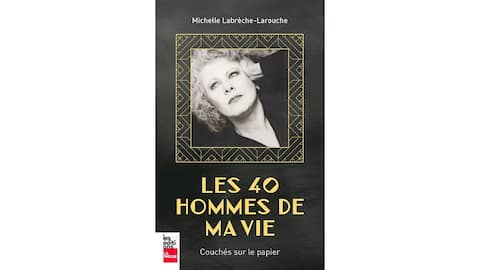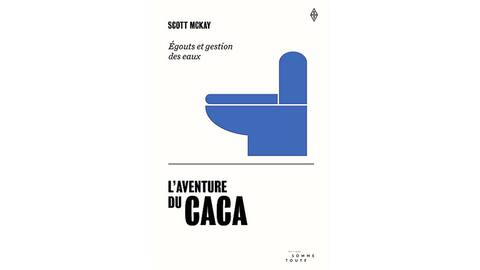Alain Deneault intends, in this new work, to tell the story of the birth of Canada. People, “driven” from Europe “for vagrancy, robbery or sedition, or others in the hope of improving their lot materially”, ended up here after a more or less long journey by boat. No philanthropic aim at the start. Nothing very noble, according to him. Only the lure of profit existed, the improvement of living conditions. Whether you are a simple worker, merchant or politician, everyone is part of the same enterprise: extracting raw materials, transforming them, then consuming them.
For the needs of the cause, in this case Canada, three categories of social actors were formed: the colonizer, the colonizer and the colonized. The latter is made up of those who were here before us, the First Nations, while the colonizer would be the boss, the one who commands, the one who collects the fruits of our labor, initially the great British families.
As for the settler, you, me and the others, he is made up of the more or less silent majority, the working people. The latter “no longer knows what the meaning of the fact that in Canada laws passed in London to grant it legislative independence in fits and starts deprived it of all national responsibility and that the expression” constitutional monarchy “means euphemism its unchanged colony ”.
The Canadian Settler
Deneault therefore insists on this difference between colonized and colonized. If Albert Memmi has drawn the portrait of the colonized and the colonizer in his famous work, he neglected the colonist, who is placed between the tree and the bark, one might say.
But where I no longer agree is when he puts French Canadians in the category of “sub-groups”, along with Ukrainians, South Americans, and so on.
We are not a people and are just good at playing useful colony idiots. This rooting of nearly five hundred years alongside the First Nations would be illusory, would not be the bearer of any original project.
Worse, the song O Canada, whose music was written by Calixa Lavallé on a poem by Basile Routhier, “a bad joker”, according to Deneault, to celebrate the National Congress of French Canadians on June 24, 1880, would only be an “overwhelming ersatz” of the God Save The Queen !
By associating ourselves with the colonizer, Deneault makes us despoilers of territories, happy genocidaires. He ignores our history of interbreeding with our Native American brothers and the pacts and treaties signed with them.
In fact, Deneault goes back and forth between Canadians and French Canadians, without making too much distinction, which makes it difficult to understand his message. We would be the profiteers and the bosses, those who profit from the colonial system and those who command, as well as those who keep the “colonized in reserves who then inspired the South African architects of apartheid”.
Who is this “Canadian settler” he talks about?
In my own history book, there are French Canadians and English Canadians; Canadians and Québécois, two very different entities by their culture, their history, their language, their religion. I cannot be associated with this “Canadian settler [qui] celebrates its domination ”over the First Nations and which would show violence, ignominy and weakness.
For Deneault, colonial history can only be explained in connection with its commercial purposes. In this, it would be reprehensible.
Lack of nuances
Far be it from me to approve of all the evils of European colonialism, but nuances are called for.
Deneault forgets to specify that on the arrival of Jacques Cartier, in 1534, “the Indian nations of the St.Lawrence Valley were already engaged in a war of extermination which could have started at the beginning of the second millennium AD, ie circa 1200 ”(archivesdemontreal.ica-atom.org). We can also read, in the founding text of the Société de Montréal of February 27, 1642 that its “social object” was to “build to house the Amerindians, clear the land to feed them, establish schools to educate them and a Hôtel-Dieu to care for them “. Nice program for colonizers.
With this implacable indictment against the Canada of yesterday and today, the author however forgets to distinguish the wheat from the chaff.
Read also
The 40 men of my life
Coated on paper
In the preface, Chrystine Brouillet says of Michelle Labrèche-Larouche, “lover, wife, mother, artist, journalist, passionaria and friend”, that this octogenarian today is “too enamored of freedom to resolve to watch the trains go by”. This curious woman, still capable of wonder and who defines herself as a “fluttering man”, admits having had a lot of fun, despite “the frustrated love stories, the questioning and the suffering”. She shares with joy her experiences, while giving the measure of the evolution of manners in matters of sexual relations. For my part, it helped me to understand my “love disorder”. As refreshing as a glass of champagne.
The poo adventure
Sewers and water management
There is no escaping it, at least once a day, if not several times, we flush the toilet, without worrying too much about what follows. Except once, in September 2015, when the City of Montreal announced that it would discharge eight billion liters of wastewater into the St. Lawrence River, ie “the equivalent of 2,600 Olympic swimming pools”. It is estimated that 4.2 billion people, or 55% of the world’s population, do not have access to adequate sanitation facilities and that 673 million of them still practice open defecation. Reading this book allows you to understand the complexity of the functioning of our health infrastructures and the ecological challenges they involve.
Love, hate and the brain
In the age of social media, climate change, COVID-19 and terrorism
Love and hate are two sides of the same coin, we often hear. The scientific journalist Michel Rochon invites us, in this book, on a fascinating journey inside the human brain to discover the functioning of these two emotions at the heart of our lives, especially with the arrival of the Internet and social media where , under cover of anonymity, hatred is expressed more. The better we know how our brains work, the better the world around us will be.
 Canada Live NEWS – 24/7 Breaking Headlines & Updates Canada Live News is one of the largest news curating sites across Canada which is made exclusively for Canadian people.
Canada Live NEWS – 24/7 Breaking Headlines & Updates Canada Live News is one of the largest news curating sites across Canada which is made exclusively for Canadian people.



